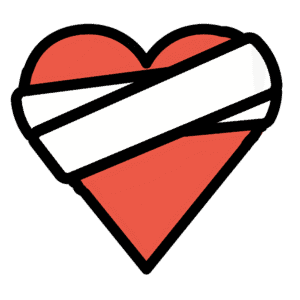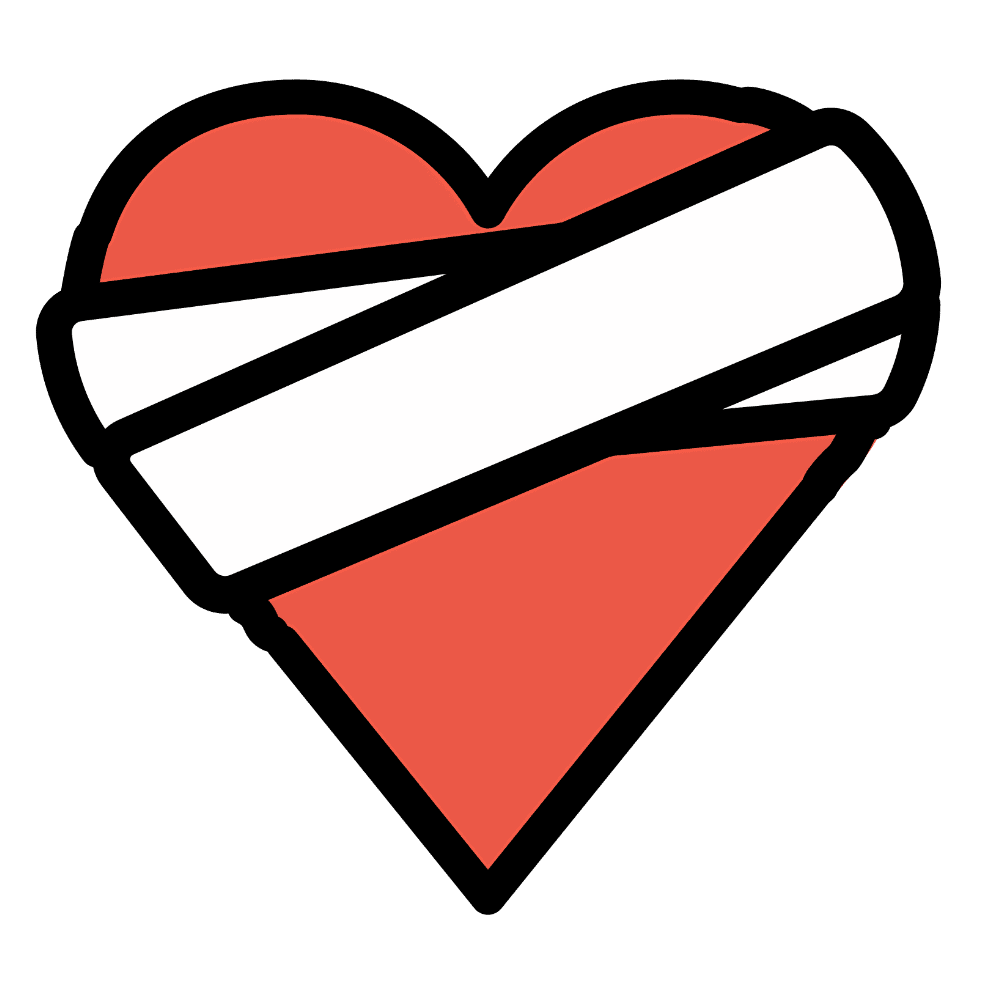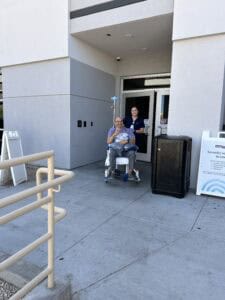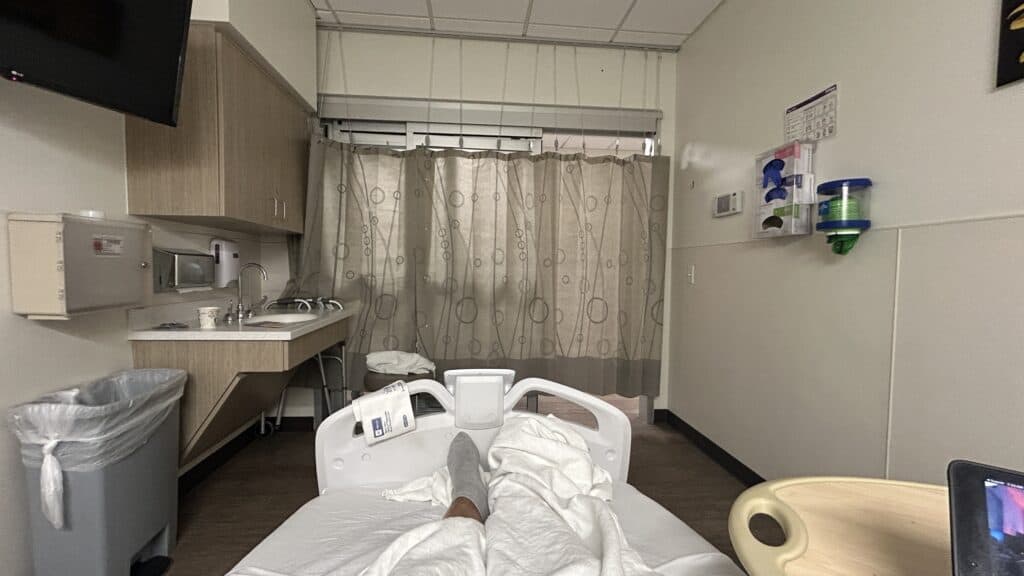It turns out I am not Invincible!
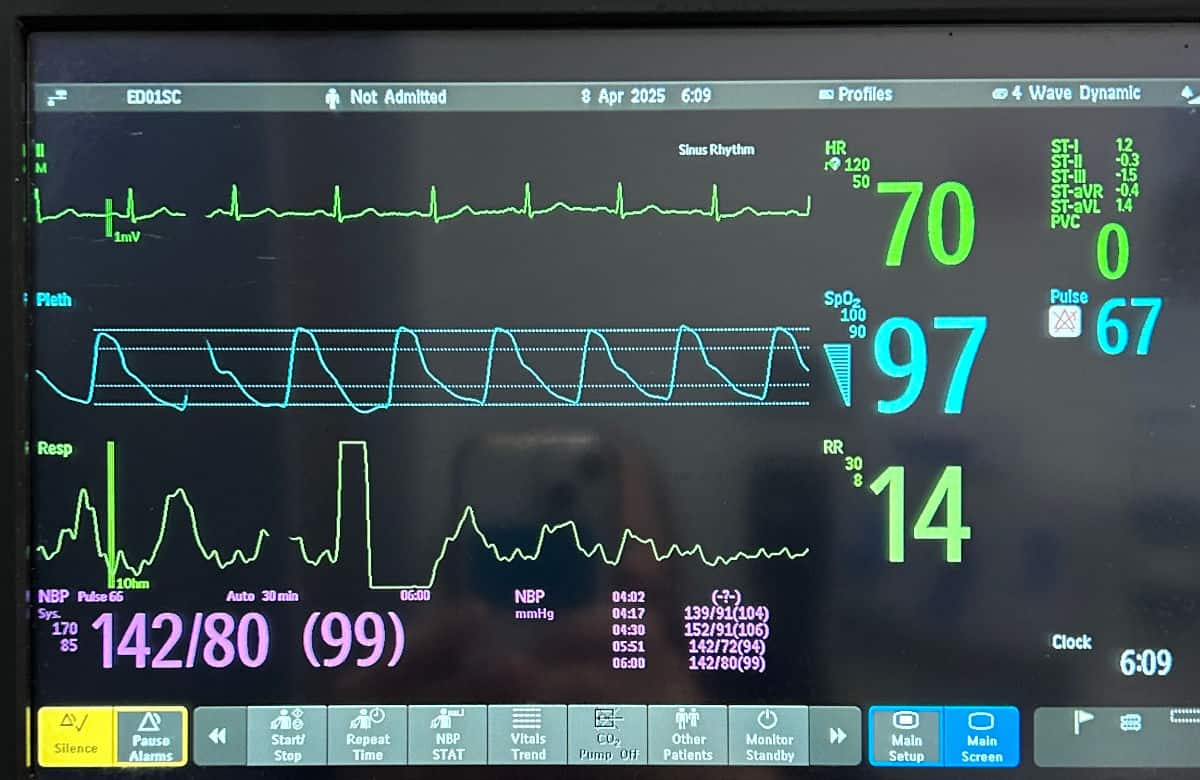
Short story:
Life took an unexpected turn in early April 2025. I had a heart attack on Tuesday, April 8th, and doctors quickly placed a stent in my completely blocked (100%) artery, followed by a second stent the next day to clear another narrowed artery (78% blocked). After four days in the ICU, I was happy to finally head home to recover.
The journey wasn’t quite over, though. While relaxing and watching the final round of the 2025 Masters Tournament on Sunday, I felt pain in my side, back, and arm. I was rushed back to the ER where doctors kept me for monitoring overnight. They performed another procedure on Monday afternoon, and I was able to return home on Tuesday—ready to take my recovery one day at a time.
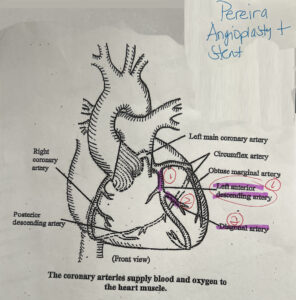
I now have 2 stents in my body, and I have to change my life. It’s a reality I’m still coming to terms with. Just weeks ago, I was moving through my days without a second thought about my heart—now it factors into every decision I make. This new chapter means reconsidering almost everything—what I eat, how I move, how I handle stress, what medications I take, and how I balance work with rest. It’s a profound reset, one I didn’t ask for but now must embrace.
Even now, it’s hard to believe I’ve joined the “heart attack club”—at 62! Geez!
My family and I will be shaken for a while, but now we’re focusing on the recovery process, both physical and mental. I’m told it will take time, but we’re moving forward.
Background and details…
Hindsight 20-20
A couple of weeks before the “event,” I noticed my energy levels dropping, even taking naps at unusual times of day. My wife mentioned I seemed short-tempered and less patient than usual. I rarely have vivid dreams, yet during this period, I experienced several that were strong enough to wake me up. Looking back, these were subtle warnings.
On the Thursday before everything happened, I woke at 2:30am with a bad headache and what felt like acid reflux, which subsided after a couple of hours. But the mild headache and fatigue lingered throughout Friday. That night, I tossed and turned, unable to get comfortable. Saturday evening brought back the acid reflux sensation—stronger this time—accompanied by nausea and general discomfort. Sunday, I struggled to focus while preparing a presentation for my team at work, fighting through unusual exhaustion. That night, the uncomfortable sensations returned.
Monday, I pushed through my team presentation and several customer calls before calling it quits early, completely drained. Went to bed super early and then came Tuesday morning at 2:30am—I woke up with intense nausea and moved to the living room, eventually heading to the bathroom but unable to actually get sick. Meanwhile, pain developed in my left ribs and back. “It will pass,” I told myself. By 4:15am, when the symptoms hadn’t improved and I felt a distinct pulling sensation behind my left arm, I realized something wasn’t right. At 5am, I gently woke my wife and asked her to drive me to the ER.
I’ve seen countless movies and read so many stories about heart attacks, yet when it was happening to me, I had absolutely no idea that’s what it could be.
The First ER visit:
The ER was just a 15-minute drive from our home. My wife drove, visibly worried and nervous. Luckily, the waiting room was empty, so they took me in immediately. After checking me in and performing an initial EKG, they moved me to a room where they drew blood and connected me to monitors. I remained conscious but still in pain and feeling quite unwell.
The ER doctor introduced himself and explained they were running tests while administering medication to help with my symptoms. About 45 minutes later, he returned with a concerned expression. “I’m worried about your situation,” he said, “and we need to move you to the Cardiac Health hospital immediately.” It was about 10 miles away. As he spoke, I watched six staff members suddenly appear and begin preparing me for transport. That’s when my own worry really kicked in.
They transferred me to an stretcher and loaded me into the ambulance. The paramedic hooked me up to their equipment and reassured me: “Everything will be ok—we got you.” Heard the ambulance siren, so I knew it was serious. Despite the situation, I managed to snap a couple of photos, as I’d never been in the back of an ambulance before. The paramedic kept talking to me as we raced along with sirens blaring. The whole experience felt surreal.
My memories become hazy after that—being rolled out of the ambulance and into an extremely cold room where someone asked for my name and date of birth while transferring me to another bed. The last thing I remember is someone saying, “We’re going to give you a cocktail,” and then nothing until I woke up in the ICU with my wife and daughter at my bedside. I later learned that cold room was called the “CathLab” (catheterization laboratory).
My first thought upon regaining consciousness was simply: “Wow! What happened??”
3 days and nights on the ICU.
It was Tuesday morning after the surgery when I finally opened my eyes to see my wife, daughter, and nurses all visibly relieved. I felt weak, and the room seemed to spin around me. They explained that they had found a completely blocked artery—100% blockage—where they’d successfully placed a stent. There was more work to be done, though. A second blockage (78%) would require another procedure scheduled for “sometime” Wednesday.
My right arm was bruised and tender where they had accessed my wrist’s radial artery to perform the coronary angioplasty and stent placement.
On Wednesday afternoon they performed the second procedure. This time was a completely different experience. They came to my room, rolled me into the very cold CathLab, moved me to their bed and was awake for most of the prep. Gave me the cocktail, and woke up after the procedure just before moving me back to my ICU room.
Despite my situation, I have to say that the hospital staff and nurses (Taylor, Cher, Tony, Amy, Elba and Tina) were absolutely incredible. Their communication was clear, their sympathy genuine, their explanations thorough, and their care nothing short of impeccable throughout my stay. Of all of them, I have to give special thanks to nurse Amy (18 years there). She was particularly good with the explanations to the family and concerns we had. THANK YOU ALL!
Second ER visit:
I was watching the final round of the 2025 Masters Tournament on Sunday, rooting for Rory McIlroy when I felt pain in my side and back. A bit concerned, I moved from the living room to the dining room where I kept my blood pressure machine. The reading was very high. Then, a sharp, intense pain shot through the back of my arm. Now genuinely worried, I interrupted my wife’s phone conversation to tell her my symptoms. I watched her face turn pale as she immediately asked me to sit down while she called 911. We’d learned from our first experience that having an ambulance come to the house was better than her driving me to the ER.
Within minutes, paramedics arrived and began their assessment, connecting me to their monitoring equipment. They agreed an ambulance was necessary, which arrived about five minutes later. A brief discussion followed about which hospital to go to—the closest ER was just 10 minutes away, but for continuity of care, I wanted to return to the same cardiac hospital where I’d been treated days before, even though it was 25 minutes away. I had to explicitly state, “Yes, please take me to Deer Valley Cardiac Hospital. I understand it’s 20 minutes further, and I’m willing to take that risk.”
This time we traveled without sirens. My wife followed behind in our car (I could see her through the ambulance’s rear window). At the ER, doctors admitted me for overnight observation. On Monday afternoon, they performed another procedure to check my stents and look for any additional blockages, accessing through my right wrist again. I stayed another night for observation while they ensured my numbers were stable, and finally, I was cleared to return home on Tuesday.
Back at home now!
I’ve been home now for about two weeks. Must say this has been quite an unexpected ordeal and eye-opener!
I feel extremely lucky as to how this all happened—enough warnings while I was safely at home. Just days before, I was riding my RZR in the backcountry alone, something I love to do. I can’t imagine how that might have turned out had the heart attack struck then, miles from help with no one around. When I think about that possibility, well… Had those warning signs come while I was out on those isolated trails instead of in my living room with my wife nearby… I can’t think of it but think that my Mother was watching over me!
My new saying has become:
My mind and body have not yet fully synced up.
My mind thinks it can do anything, but my body gets tired quickly.
I tried to write this blog post during my first week back home but couldn’t stay at the computer for more than 20 minutes at a stretch! It’s taken me this long to build up enough stamina to use the computer for a couple of hours before needing to rest. The same goes for walking—during that first week, I could only manage to move around the house. By the second week, I ventured just a couple of blocks outside. Thankfully, I’m able to do more now.
Knowing I am not invincible is tough.
The recovery is not only physical. It is mental as well. The fact that my actions led me to this place and time feels like I let my family down. There’s a certain humility that comes with facing your own mortality—a realization that you’re not as invincible as you once believed.
I find myself reflecting on choices made over years, habits formed, warnings ignored. The weight of these realizations sometimes feels heavier than any physical discomfort. I’m learning that vulnerability isn’t weakness—it’s simply being human.
There have been many lessons learned through this experience, and I understand now that the road to recovery will take time and consistent effort. Each day brings new insights about what truly matters. I hope to write more about that journey in another blog post, as processing these thoughts helps me heal both body and mind.
Subscribe to my JorgeDiaries emails for other personal stories like this
I care about you.
One last thought… I care about you. Take care of yourself! You are not invincible! Even if you feel fine, it’s worth asking your doctor to check your heart risk factors. Don’t wait for a wake-up call like mine.
